Reverb Gives provides students, teachers, and leaders of music programs with the instruments that they need, directly from the Reverb marketplace. Since its launch, Reverb Gives has had the opportunity to help support a variety of remarkable organizations committed to making the world a more musical place.
It's no secret that when schools are faced with tightening budgets and decreases in funding, the arts programs are some of the first to go. But, as anyone who's been lucky enough to participate would know, band and orchestra can be one of the most formative and important programs a kid can participate in, enhancing their critical thinking skills, boosting their confidence, leading to lifelong friendships, and so much more.
With a new school year right around the corner, we spoke with a few workers from organizations that are committed to the benefits of band and orchestra and focus on lessons and equipment about what makes their organizations special, the benefit of joining a band/orchestra program, and the importance of keeping music in schools.
How would you describe 240 Strings in one sentence?
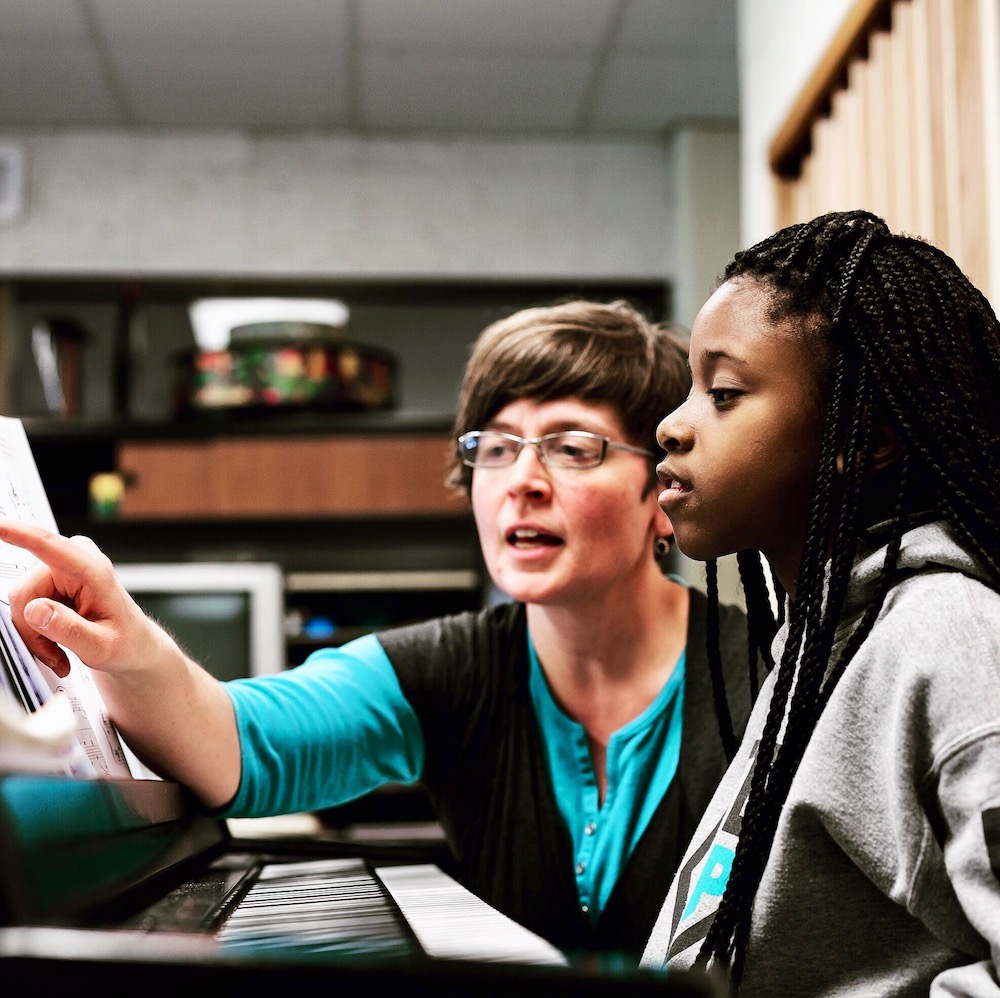
240 Strings is a nonprofit providing Portland, Maine’s low-income youth an opportunity to change their lives through music, free of charge.
What inspired you to work at your organization?
Our founding professional musicians know firsthand the many benefits of music education and wanted to make them available to local children who often do not have access to private music lessons.
Although Portland has a vibrant arts community, it remains inaccessible to a large portion of its population. Almost a quarter of the public schools in Portland serve demographics with poverty rates over 70 percent, and more than half of the district’s students qualify for free or reduced lunch. Many refugee and asylee families struggle to assimilate quickly and make ends meet while city housing costs continue to climb.
Nearly one-third of district students come from homes in which languages other than English are spoken. These forces combine to create a community in which many families cannot afford extracurricular opportunities for learning in the arts. 240 Strings seeks to fill this void by providing invaluable arts experiences to children who cannot otherwise access them. Besides a lifetime of joy, we believe that music education can help to close the achievement and income gaps in Portland.
What’s the most memorable thing that a student has taught you?
One of our students told her instructor, “Ever since I started playing the piano, I have something to share.” This was surprising, and when asked how people react when she plays for them, she said, “It gives people a reason to listen to me. It feels great.” Without anyone suggesting it, she’s found her way to increased confidence through study and practice. Her sense of accomplishment and connection are some of the best parts of studying music. Sharing music can bring us together.
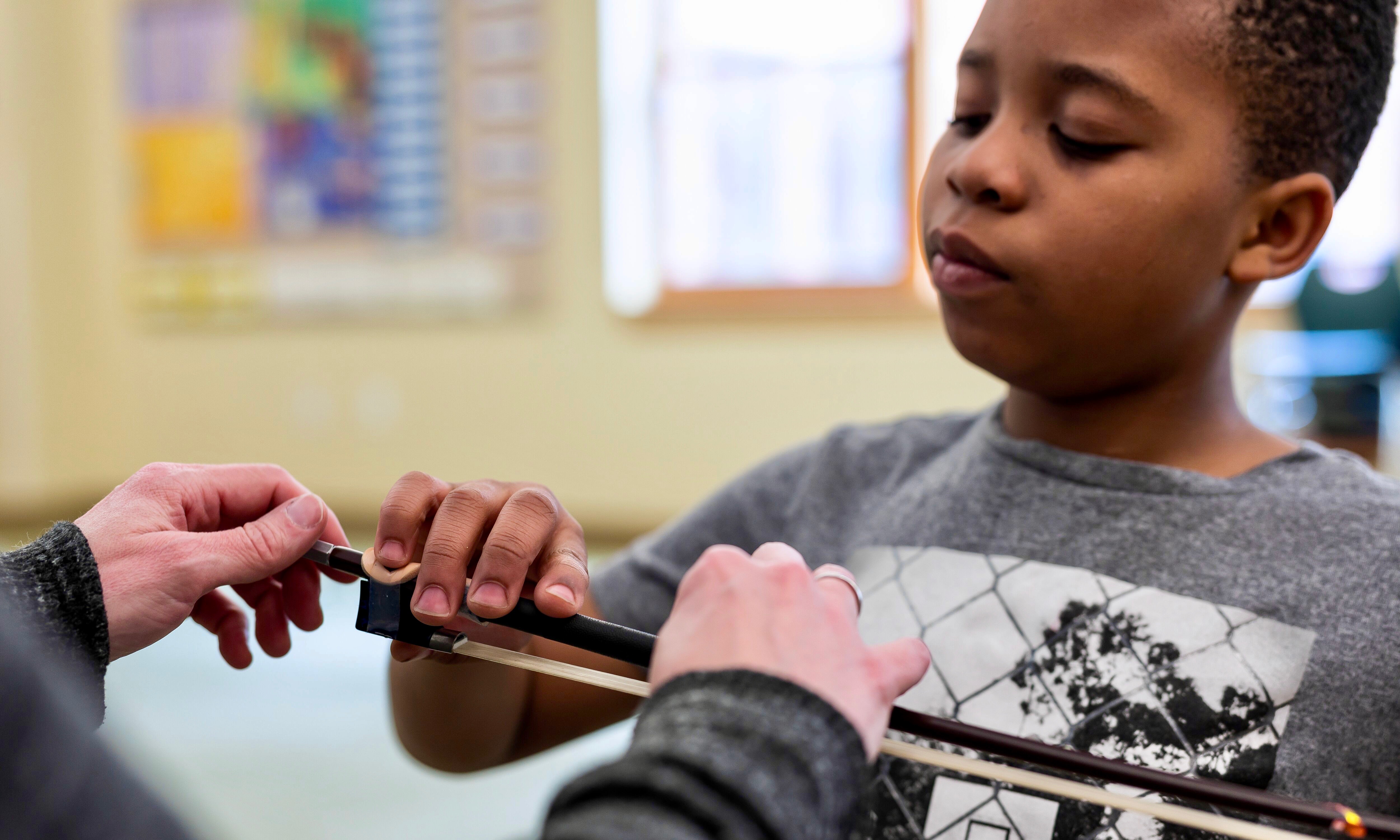
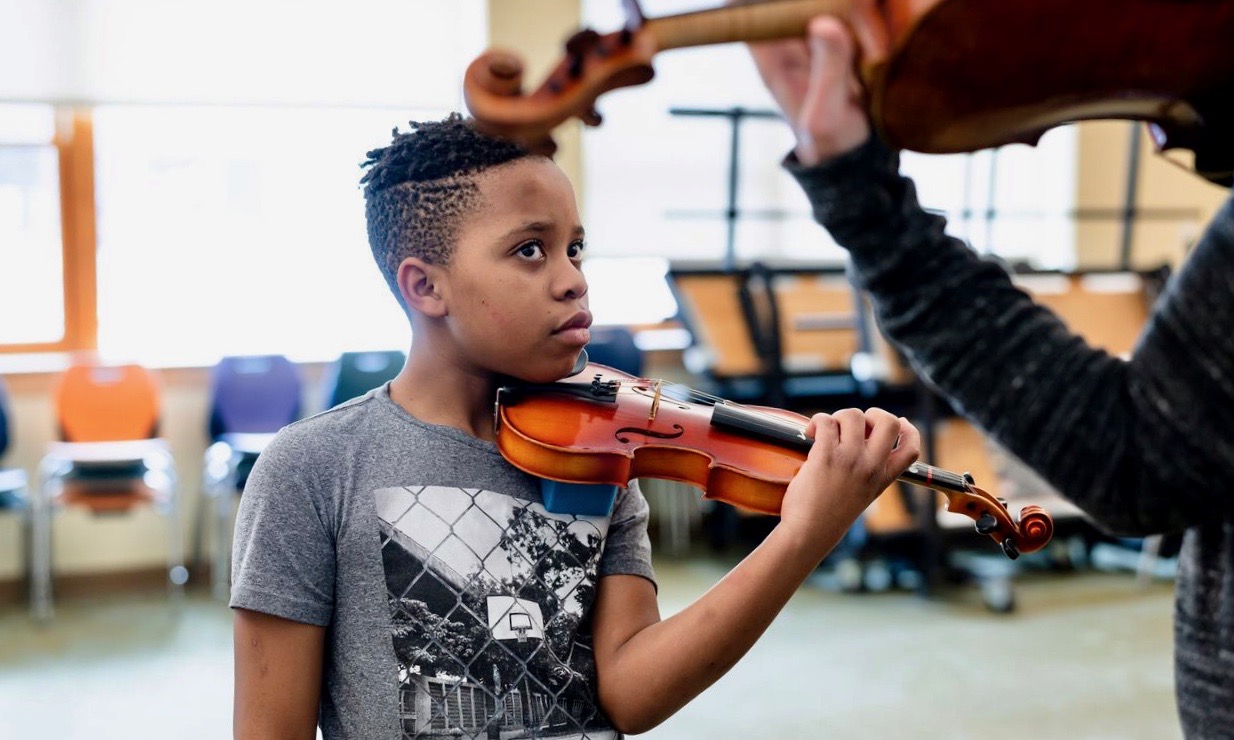
How do students benefit from learning cello, violin, and piano, specifically?
Learning to play an instrument like piano, cello, or violin takes patience, persistence, and concentration—capabilities that help students excel in school and in life. Studying classical music also helps young children become better listeners, which can improve literacy skills as well as the ability to focus attention in large, busy classrooms.
Listening skills assist language development and are a powerful tool for English language learners, as many new Mainers are. Strengthening listening, focus, and persistence can help shrink the academic achievement gap faced by low-income and at-risk youth, relative to more affluent peers.
Where do you see your organization in 10 years?
In 10 years, 240 Strings will have 50+ students across the primary and secondary school grades, engaged in private lessons, ensemble and group classes, as well as specialized music workshops that provide hours of music study each week, with resident musicians and university music education students.
240 Strings will continue to support and enhance music education in the district’s public schools and forge community partnerships with other organizations that serve youth, becoming an important member of that service infrastructure. We hope to inhabit a dedicated teaching space while remaining attuned to transportation challenges facing families.
How will you use your Reverb Credits?
We’re excited to shop Reverb for portable electric keyboards! 240 Strings offers 30 weeks/year of tuition-free private, ensemble, and group lessons to students unable to afford them. We provide everything a student needs: instruments, books, even replacement strings. Instructors and volunteers encourage and guide practice between lessons with instruments the students keep as long as they are studying with us. Keyboards have proven more difficult to come by, so that’s our priority, and we’re so grateful!
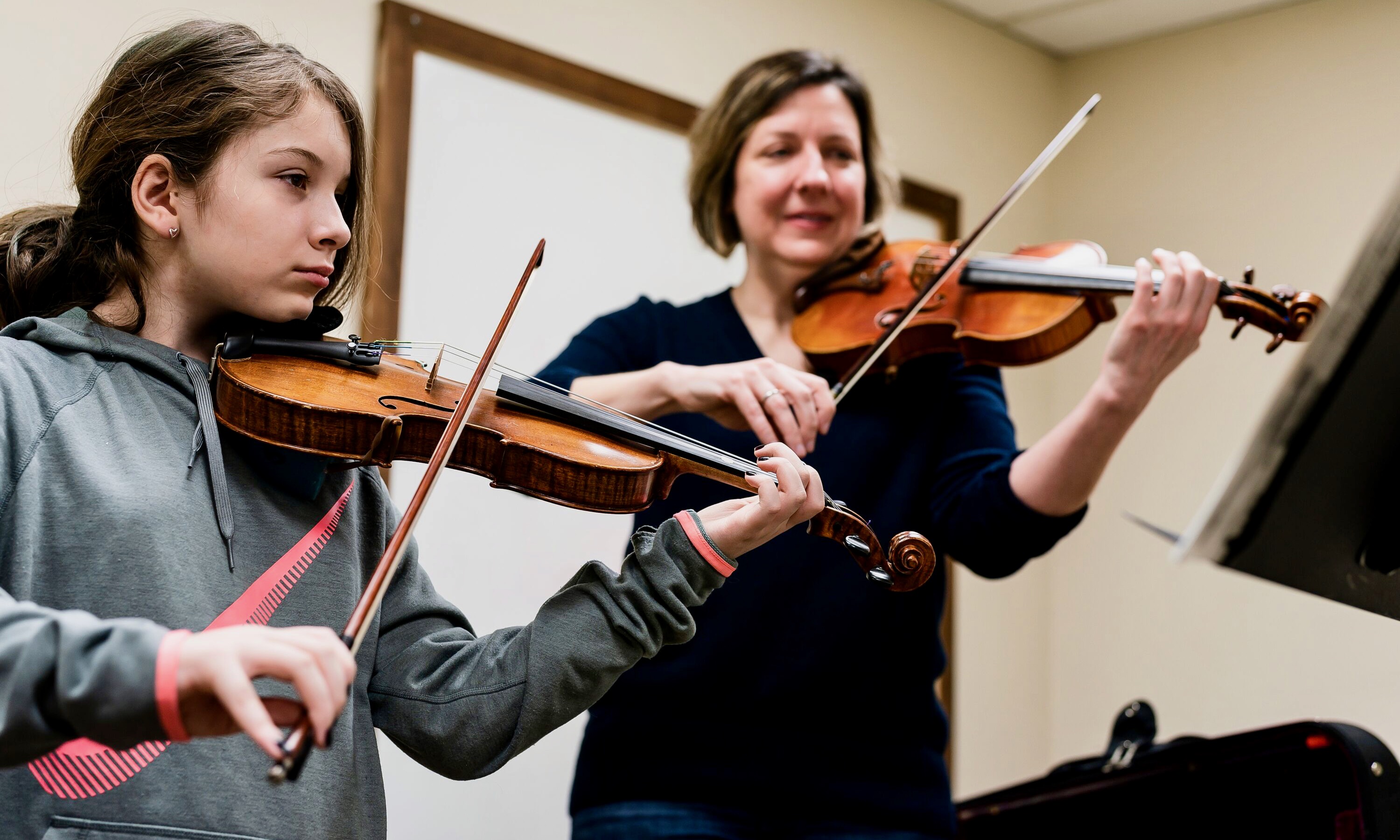
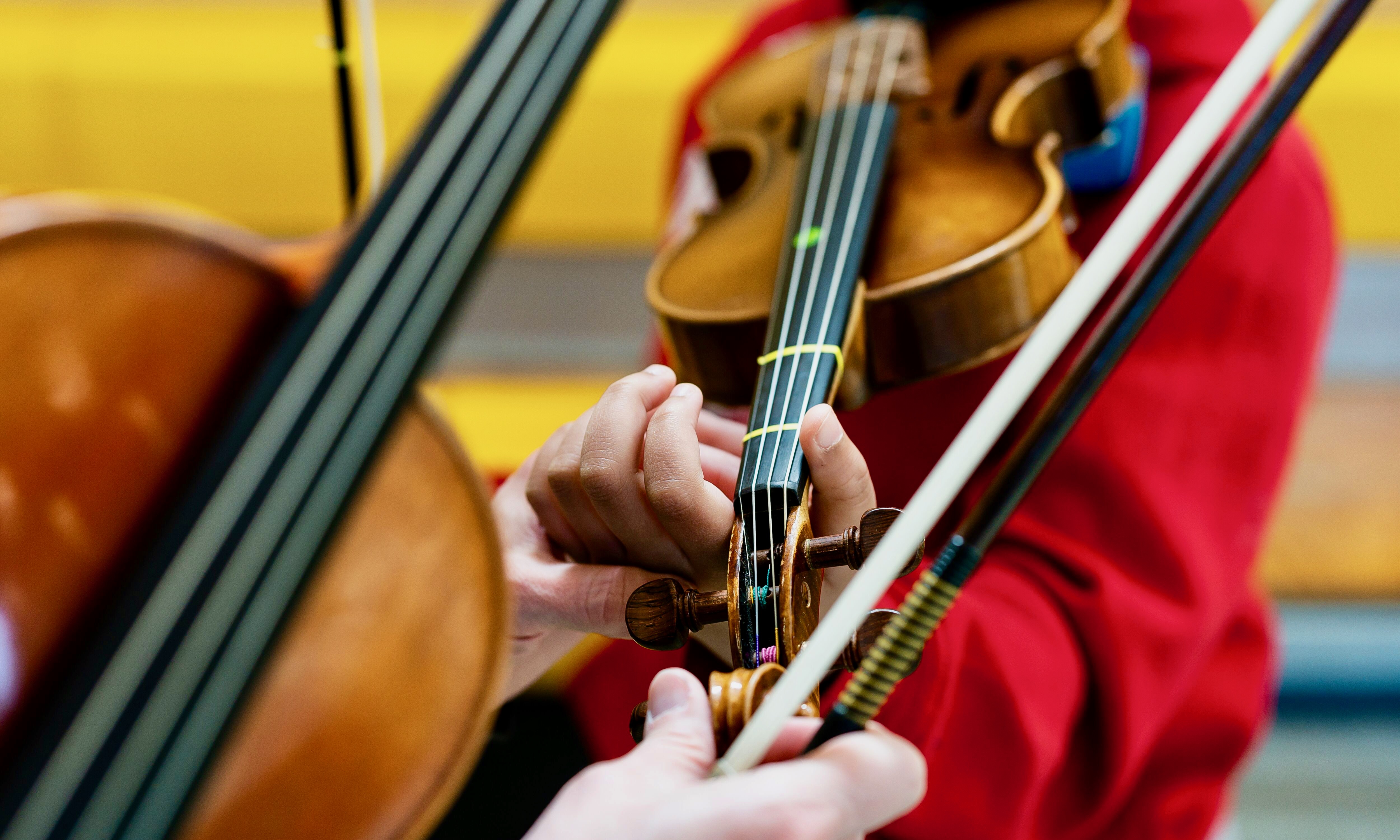
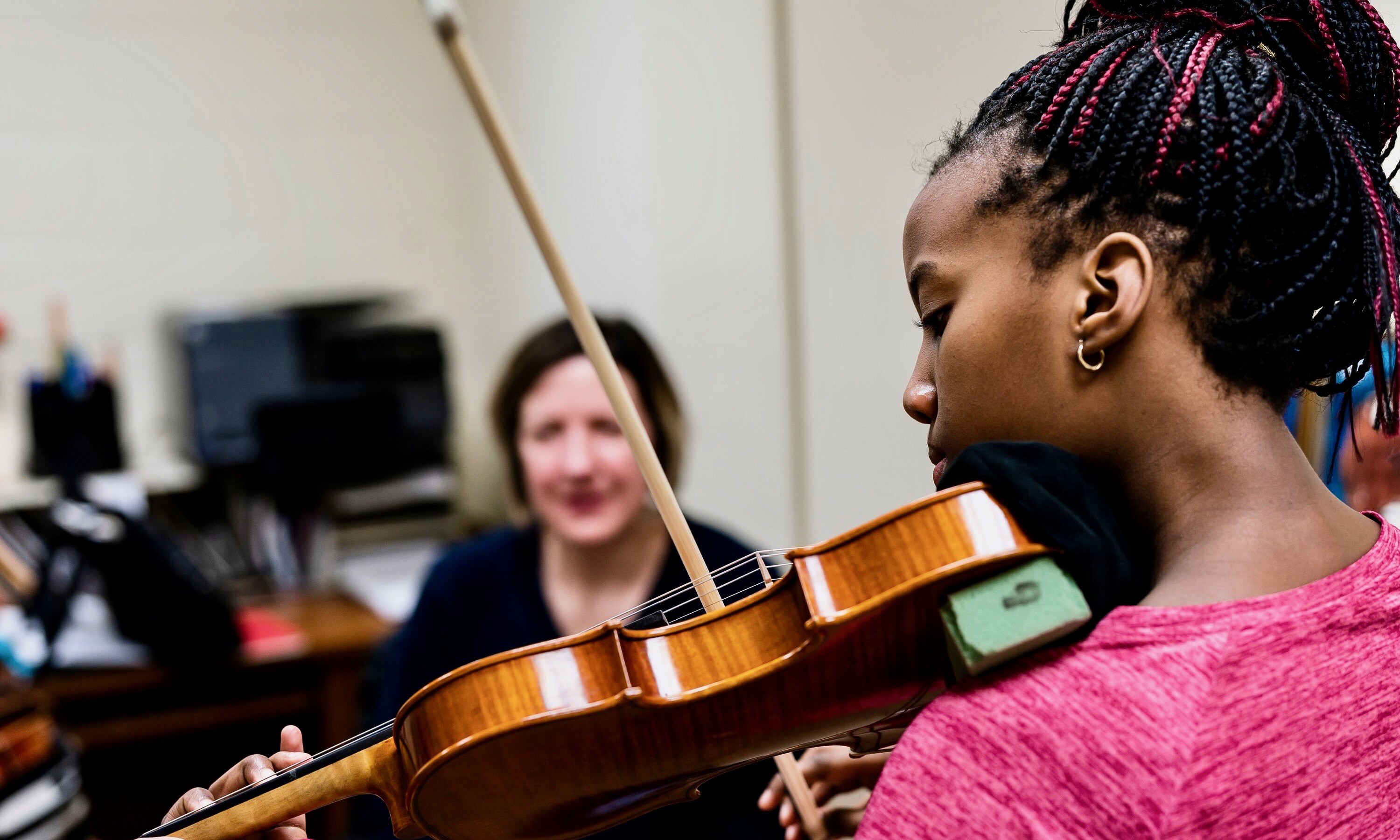
How would you describe the Bay Area Music Project in one sentence?
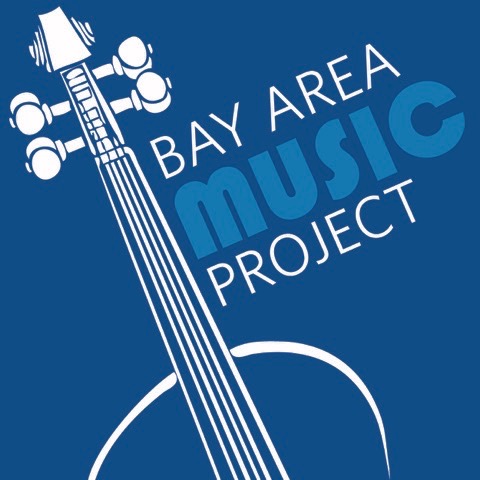
The Bay Area Music Project provides access to high-quality music education and social development mentoring for kids who need it most.
What inspired you to launch your organization?
After spending many years working in the music industry and witnessing how much music connected and inspired people, it was heartbreaking to see music programs in schools diminishing to near non-existence.
Families without the means to pay for private lessons are at a disadvantage to those that could afford them, setting a dangerous precedent in education and determining a child’s success in life. I wanted to create a music program that was accessible to all children, regardless of their circumstances, and provide opportunities to make a positive impact on someone’s life.
What’s the best experience that you’ve had while working at your organization?
Watching our kids meet and perform with Yo-Yo Ma last September. It’s a moment they’re so proud of and will never forget.
What’s the most memorable thing that a student has taught you?
I think I learn something from all of them, really, and it’s a reminder about perseverance. Learning to play an instrument for some of our kids can be difficult, particularly when some other challenges are going on in their life whether it’s at home or school. The fact that these kids show up every day willing to put in the hard work to get better not just for themselves but for their ensemble is not lost on me or any of our teaching artists and support team.
How will you use your Reverb Credits?
We are upgrading our digital technology by purchasing portable synthesizer and sampler equipment for students to compose and arrange their music for the orchestra.
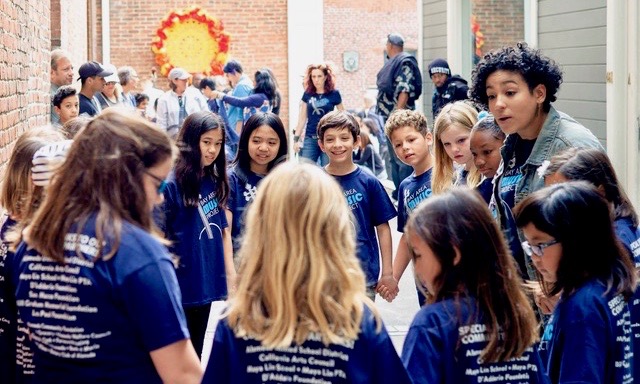
What does the Young Musicians Foundation do on a daily basis?
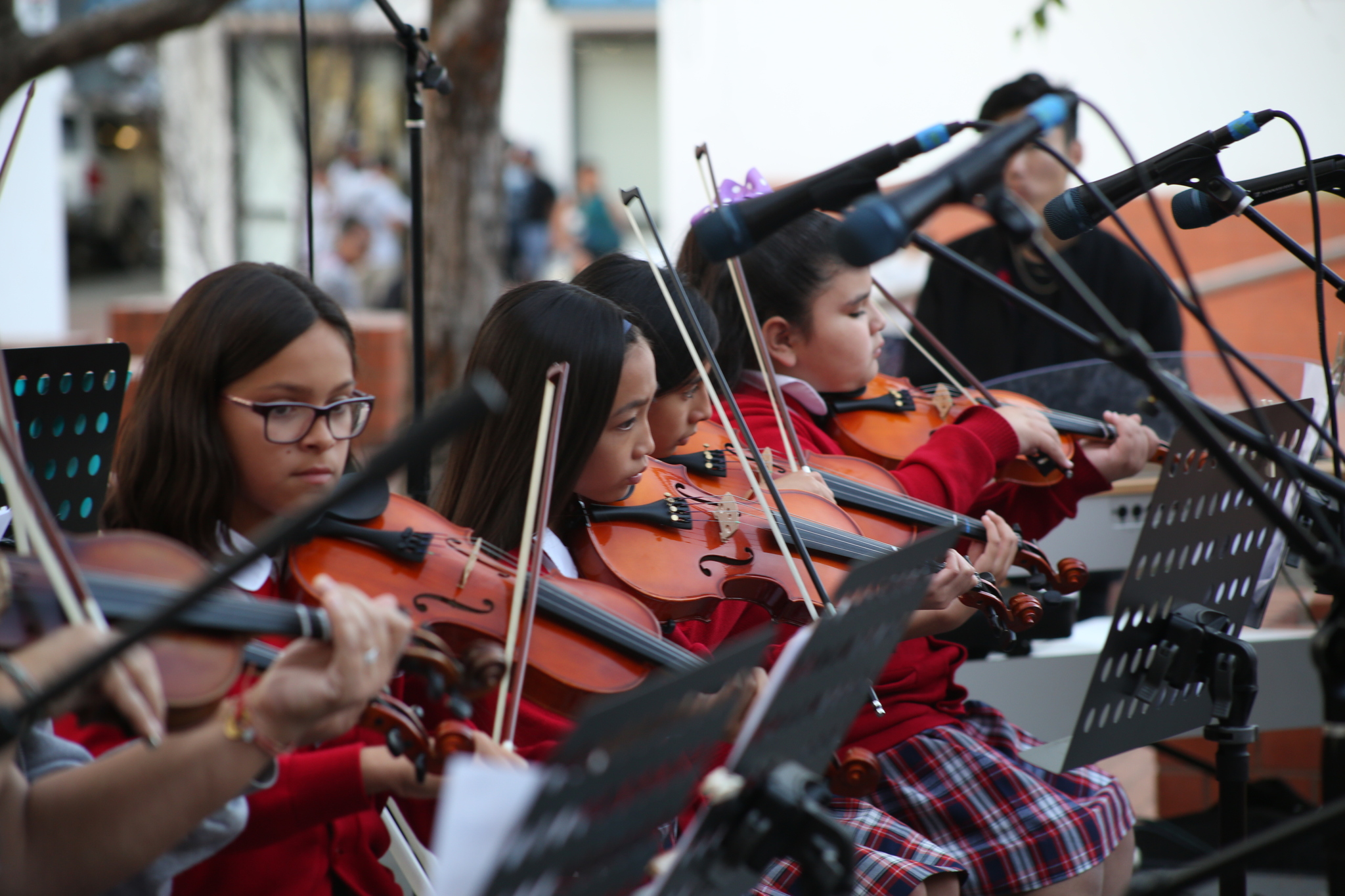
The bulk of what YMF does is send our teaching artists out into the field. We work with 27 schools across Los Angeles, providing tuition-free music instruction. We work with about 4,500 kids every week.
What’s the biggest challenge your organization faces when trying to get more programs into schools?
It’s hard getting the schools to recognize music education. If the schools are interested, the kids will flock to it. The kids want the opportunity because these are kids who normally wouldn’t have that opportunity. It’s getting the schools to realize that these music programs are as important as math, reading, and science.
Could you explain what YMF’s community orchestra is?
Last year, we moved into a 4,000-square foot industrial space. That’s the first time YMF has had a facility like that. We wanted to integrate into a community that our constituents are located in.
We call it a community orchestra, but it’s an all-afternoon music program, for ages starting at five years old through to high school seniors. They get small group instruction. We’ve got a harp ensemble, guitar ensemble, vocal ensemble, and more.
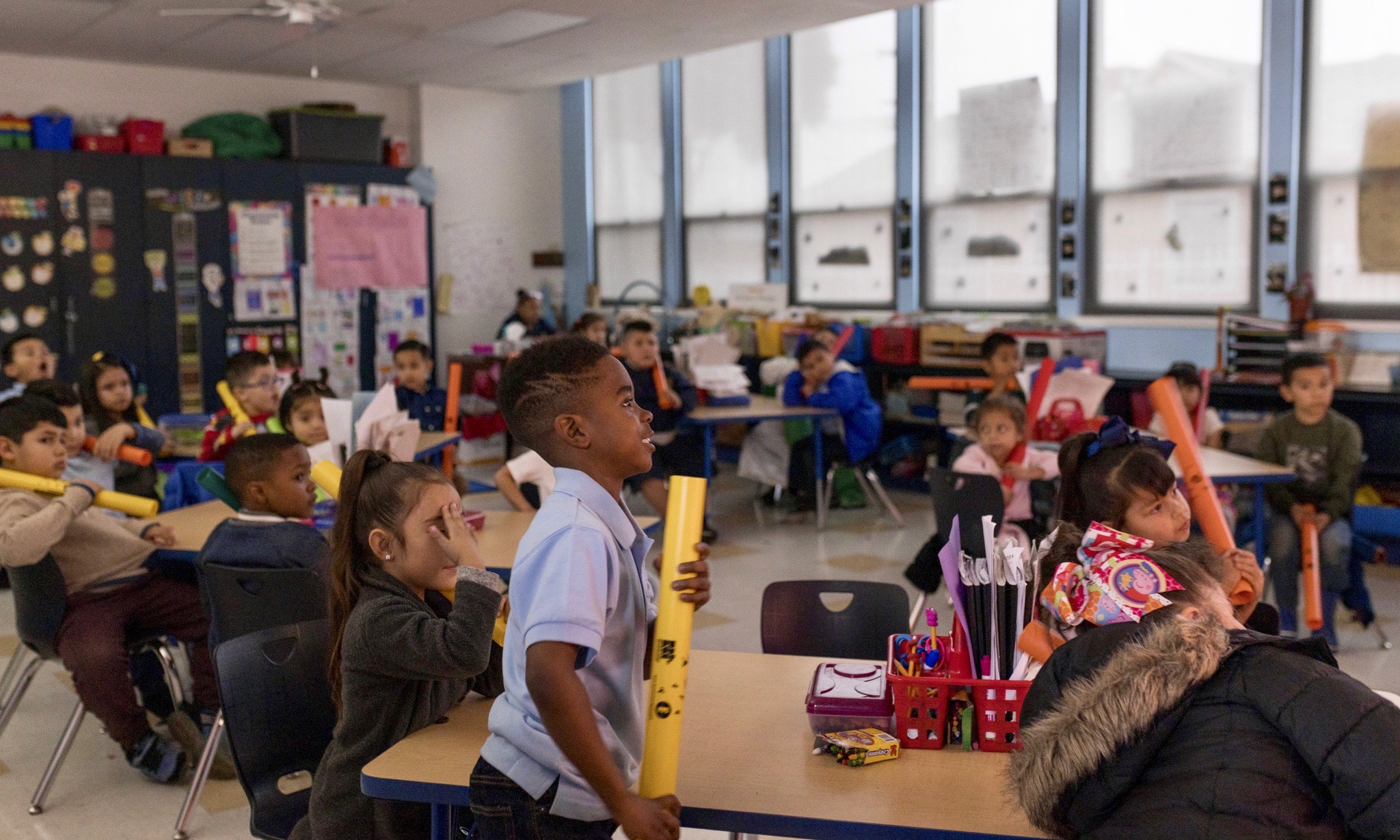
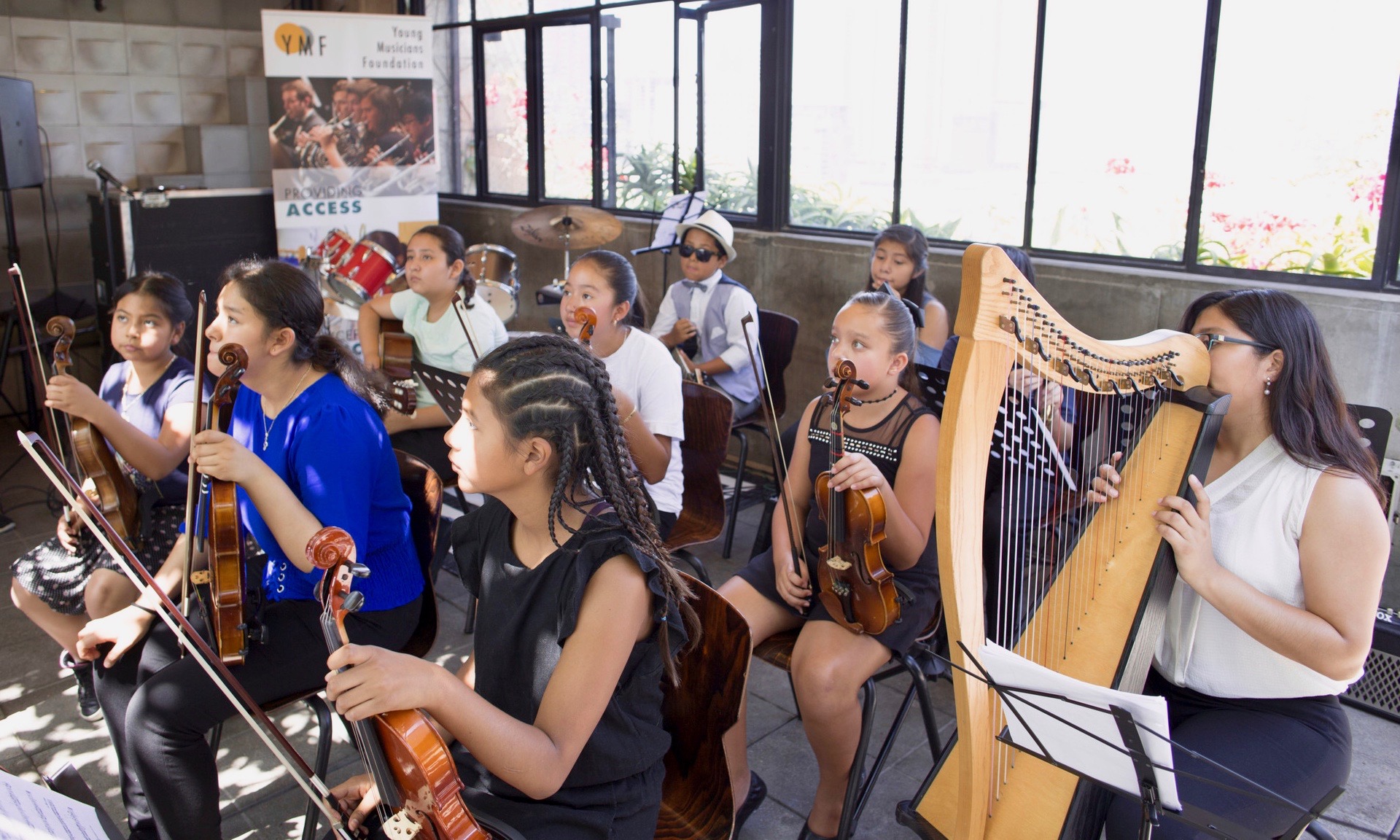
How does this compare to your in-school programs?
To play in an orchestra, you need a certain skill level—how to hold the bow, how to play—and that takes a while. Funded schools have programs to set that necessary foundation, so our job is match that. We hope that when these kids move on, we've opened the door for them to play in community orchestras or bands with the skills the've learned. And if one of our kids has reached the level where they can play in an orchestra, we help them find one if their school doesn’t offer it.
What did you do with your Reverb Credits?
We bought hand drums and got some additional recording gear. Our internship program is now ready to launch in September, and we couldn’t have done it without Reverb.
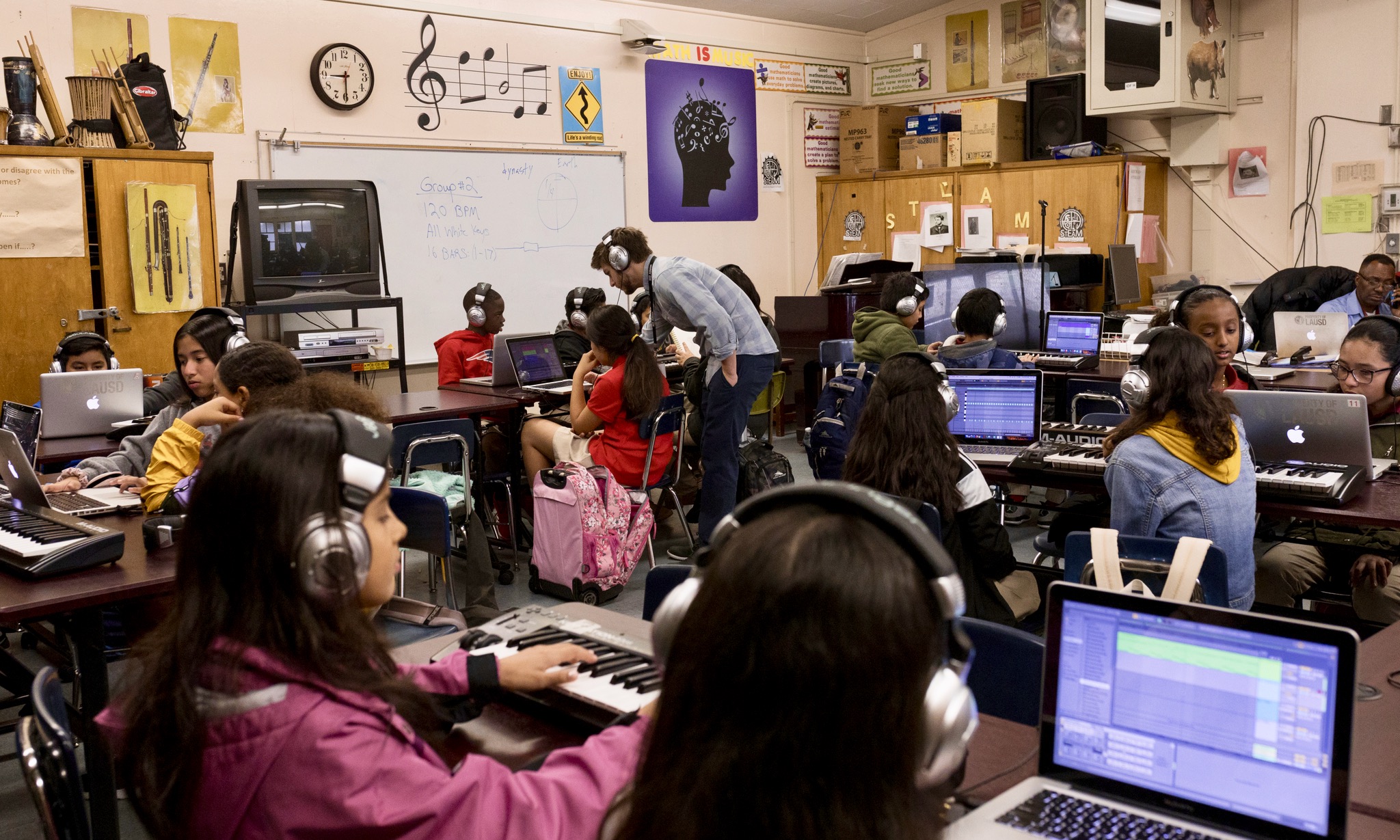
To learn more about Reverb Gives, including how the program works, what organizations the initiative has supported, or how to apply for a grant, visit the Reverb Gives website. Want to learn more about how we've helped individual groups? Check out our Reverb Gives interview series here.

